Video
 “Our bodies tend to hold the past memories and the trauma.”
“Our bodies tend to hold the past memories and the trauma.”
Published August 9, 2018
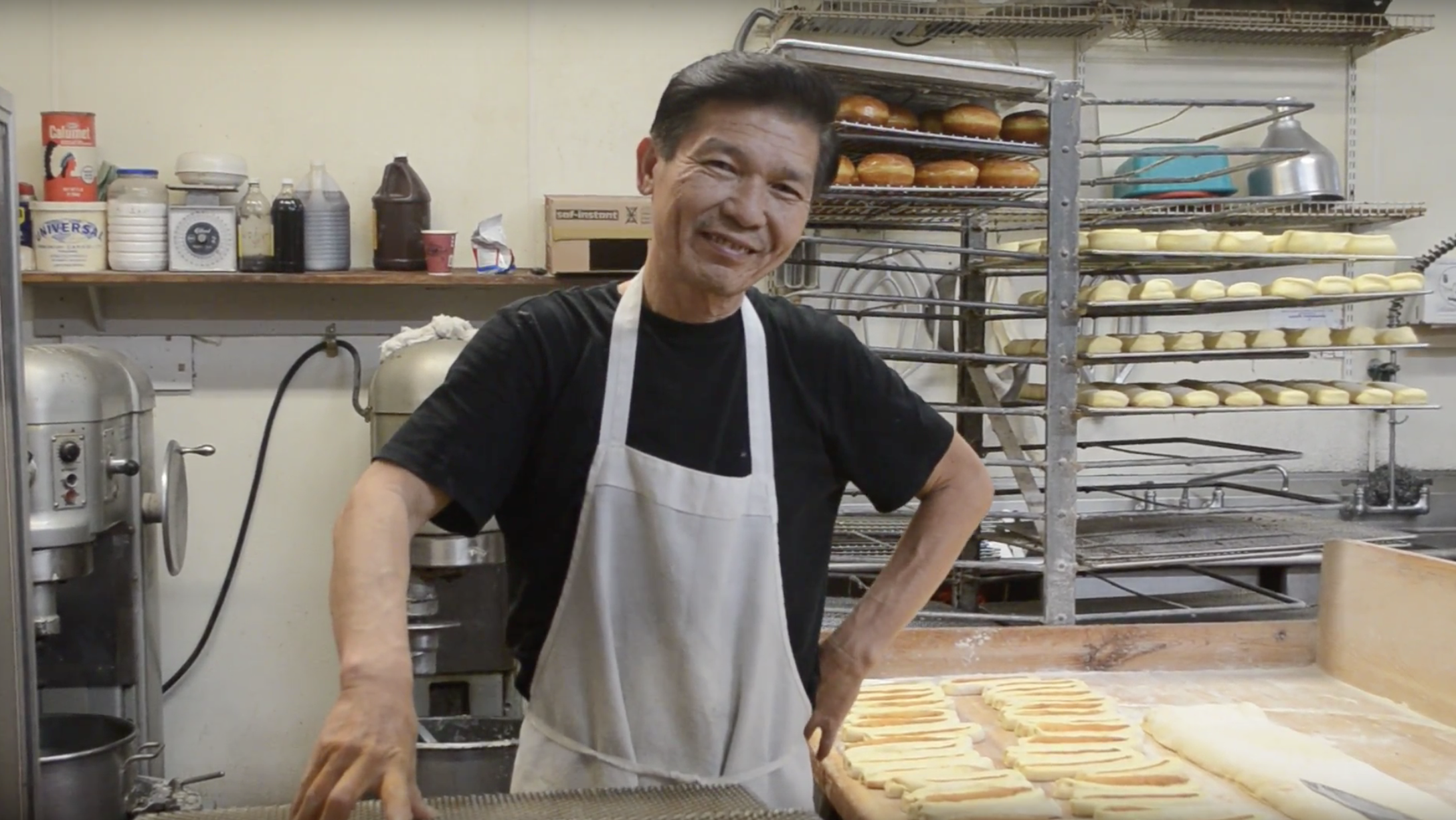
At first glance, Abir Aljrafii, 43, seems like any other mother. She makes snacks for her four kids, takes care of the family’s six canaries, and cheers for her kids at their kickboxing competitions.
Aljrafii is also a survivor. Her family fled their home country of Syria in 2012 during the civil war. Now resettled in Glendale, Calif., Aljrafii meets with a psychologist once a week. Like many refugees who have relocated to the United States, she still carries mental trauma of the war – even now, loud noises like helicopters and police sirens unnerve her.
“Our bodies tend to hold the past memories and the trauma,” says Jennifer Chen Speckman, a licensed clinical social worker specializing in psychotherapy who has treated refugees for 17 years. Trauma can present itself in different ways, from sleep disruption to intrusive recollection to emotional numbness, she says.
This can disrupt their daily routines. Victoria Dzorka, an International Rescue Committee (IRC) caseworker, provides support by referring clients to organizations that can meet their needs, including mental health clinics, single mother support systems, and educational programs for children with disabilities.
The trauma often emerges at unexpected times. For example, routine meetings to go over paperwork can suddenly turn into a suicide assessment as past memories resurface, Dzorka says.
Even though refugee populations around the world are surging, according to statistics from the United Nations, interviews conducted for this project reflected how emotionally draining it is to adapt to a new country.
Paul Ly, a 56-year-old Cambodian refugee who immigrated to the U.S. in 1990, now experiences sudden flashbacks while he’s at work running his donut shop in San Francisco. At times, he says, he feels overwhelmed by memories of his past experiences that render him powerless. In those moments, he needs to take a few minutes to collect himself, often stepping out for a cigarette break.
Meanwhile, Manyang Reath Kher, 30, of Richmond, Va., says he keeps himself busy with running his coffee company to avoid dwelling on harrowing past memories. Kher, who is from Sudan, says that he witnessed his uncle being shot and that he fled across a river before spending 13 years in a refugee camp.
“I have a focus now,” he says. “I’m going to focus on myself more, focus on people who work for me. I’m also focusing on how I can help more people.”
For other refugees’ families, however, mental health care is an issue worth confronting. Ly’s 24-year-old daughter, Judy, is concerned about her father and how her family is coping with their collective mental health issues. While Judy Ly was born well after her father survived the Cambodian genocide known as the Khmer Rouge, she says she believes she may have inherited her father’s trauma.
Studies have shown that intergenerational trauma is defined as stress and trauma that transcends generations. Today, Judy Ly says she presents symptoms, such as feelings of unfulfillment and loss of motivation in work, which are similar to her father’s. “Sometimes, I get a feeling of an emptiness in me. And when I first started on birth control, those feelings started spiraling into possibly depression,” Judy Ly says.
With the help of resources such as refugee support groups, children can become “more acclimated and more resilient” after surviving stress- and trauma-heavy environments, says Paula Thomson, a professor who has studied intergenerational trauma in the Department of Kinesiology at California State University, Northridge. But with an overdose of stress and trauma, their neurobiological systems might gravitate toward feeling more adversity, she says.
“Contrary to the popular mythos is most children of refugee parents don’t become criminals or addicts,” Thomson says. “They just become really stressed adults.”
While many refugees and their families carry the trauma from their past, once they are resettled in the U.S., according to interviews, financial woes can significantly exacerbate the stress and anxiety they face during their resettlement process. When the State Department provides loans for refugees’ travel to the U.S. through its Reception and Placement program, official documents show that recipients must begin paying back those funds after they arrive.
“Money that you’ve never seen, money that you’ve never dreamed about, never dreamed of having—and now you have to pay it back,” says Wilson Kubwayo, 24, a refugee from Burundi whose family received a loan from a resettlement agency when they were granted asylum in Tucson, Ariz.
Though Kubwayo was ecstatic to be living in the U.S. and not in a refugee camp, his family began to regret the move when they received their first bill.
“You don’t even know how jobs work here,” Kubwayo, who spent nearly all of the first 13 years of his life in a Tanzanian refugee camp, says. “It’s a culture shock.”
Culture shock plays out in other ways as well. Linh Vu, 52, who now lives in Sacramento, Calif., still remembers feeling out of place during playdates with her classmates when she first arrived in the U.S. from Vietnam when she was 9 years old.
“When I slept over [at friends’ houses], I don’t remember talking to them at all. I just remember being there,” says Vu. “Whatever food they put out, I just had to eat. I remember watching TV but I couldn’t understand anything.” With limited English, Vu says she struggled to find her place for years.
Whether it’s coping with the sound of sirens or having to pay back money that they never had to begin with, the struggles manifest in different ways for these refugees from around the world.
Age: 56
Country of Origin: Cambodia
Current Location: San Francisco, Calif.
In the 1990s, Paul Ly was forced to relocate to the United States after he was uprooted from his homeland. He was able to start a small business and a family here in California, but to this day, his traumatic memories of his past haunt both him and his children.
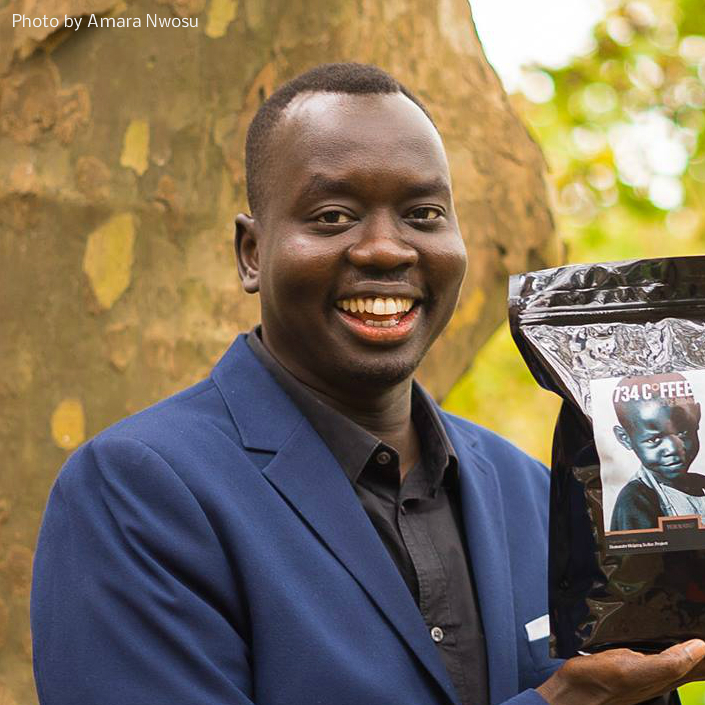
Age: 30
Country of Origin: Sudan
Current Location: Richmond, Va.
The 13 years that Manyang Reath Kher spent in refugee camps are still a facet of his everyday life in Richmond, Va.
Kher, who became an entrepreneur after resettling in the U.S., built his history into the name of his small business, 734 Coffee: It’s a reference to the coordinates of Gambela, Ethiopia — 7 degrees north latitude and 34 degrees east longitude — the region where his camps were located.
“No one [can] really completely forget everything they go through,” says Kher, who was 3 years old when he saw his uncle get shot to death during the Second Sudanese Civil War. But, he says, mental health issues are not a big problem in his daily life.
While he occasionally experiences flashbacks of his childhood spent in various refugee camps, he says, “It wouldn’t do you any good if you just focus on those negative thought[s].”
Kher says that he steers away from his harrowing memories by keeping himself busy. In addition to running 734 Coffee, he is the founder of the Humanity Helping Sudan Project, a nonprofit that prepares Sudanese refugees to become self-reliant once they exit the camps.
He sees his business and nonprofit as opportunities to support refugee communities and raise awareness about the difficulties they face. Kher says he hopes refugees can receive more entrepreneurship training, which he believes could help spur job growth.
He credits good sleep, good music and good company with helping him leave his refugee camp days behind.
“I want this to be my personal story,” Kher says.
Age: 43
Country of Origin: Syria
Current Location: Glendale, Calif.
Abir Aljraffi, her husband, her four children are recent arrivals to the US from Syria. Not only does she have to cope with her traumatic war memories of her home country, but also adjust to living in America.
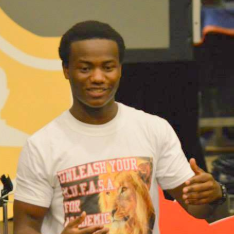
Age: 24
Country of Origin: Burundi
Current Location: Portland, Ore.
Wilson Kubwayo knows what it’s like to live in a house with no bathroom, no lights, and no electricity. He knows what it’s like to walk barefoot for miles to get water.
“I had to go through a lot of healing to be able to admit that I came from a refugee camp,” says Kubwayo, 24, who fled his home country of Burundi during its civil war with his family.
Most people don’t want to talk about being a refugee, but he doesn’t want to forget.
“When you lose those values [of acknowledging one’s past] as a refugee or an immigrant, when you lose that, it’s almost like you’re losing your self identity,” he says. “You’re losing everything you have… That kind of experience is still what builds me.”
Kubwayo and his family were granted asylum in the U.S., but resettlement came with significant culture shock. He described one vivid memory from middle school, when he was eating an apple in a hallway after lunch. It turned out he was breaking school rules, and a teacher told him to throw the apple away.
“I was like, how could you tell me to throw food away in the garbage? There are thousands of students my age who don’t have food around the world. And the teacher didn’t think about that,” he says. “Nobody tried to understand why somebody was doing what they were doing.”
Kubwayo wonders if things would have been different if he had role models who were refugees. To him, the power of having refugee role models is immeasurable, for both the refugee community as well as others.
“[Refugees] have to have enough confidence to be able to embrace where they are coming from so that they can educate the other people,” says Kubwayo. “It’s all about sharing who you are at the end of the day so that they can understand.”

Age: 52
Country of Origin: Vietnam
Current Location: Sacramento, Calif.
When she was 9 years old, Linh Vu did not have toys to play with. Instead, she and her six younger siblings passed the time playing “Escaping Vietnam”: They pretended the floor was water, and they jumped across couches and tables, trying to escape imaginary bombs. It’s not the kind of game every 9-year-old is used to, but it was all Vu knew back in 1975.
Her family had left Vietnam just a few months earlier. “The boats around us were exploding and all the people we knew around us were dying… We went down under the bottom deck and we all prayed. We didn’t know where we were going. All we knew is that we just have to go out to sea and pray that we hit land. It didn’t matter what country,” she recalls.
Vu’s family went from a U.S. military base in Guam to a refugee camp in Pennsylvania before resettling in the San Francisco area with the help of extended family. Once there, Vu started fifth grade. Her father, who used to be a school principal in Vietnam, started a job as a school janitor.
“I would cry every day because it was so scary,” says Vu. “My teacher, Mr. Mason, was anti-Vietnam War so he didn’t treat us very well. He just sat me in the corner of the room and basically ignored me every day. I always felt like an outsider.”
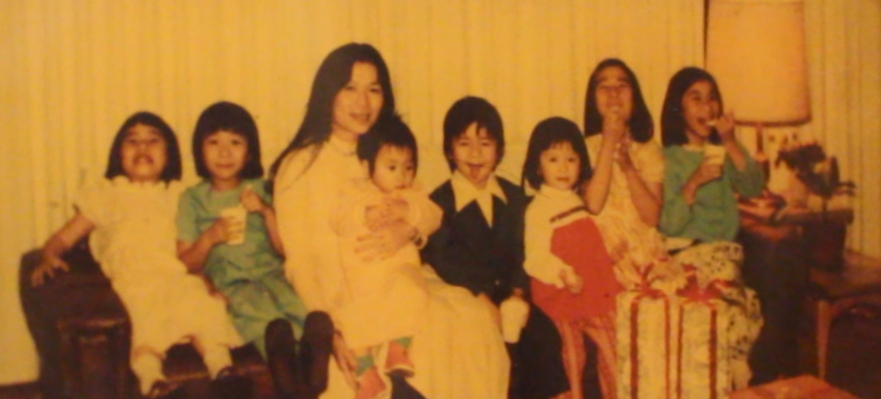
Vu’s limited English made her especially lonely in the classroom. Her parents’ divorce a few years later left Vu feeling isolated within her family, too.
Now, Vu is an elementary school teacher who lives in Sacramento, Calif., with two children.
“In Vietnam, you’re not supposed to talk to your parents. You’re being talked to; you’re not supposed to talk back.” she says. “I was never close with my parents, so I hope that [my children] have an emotionally safe place to fall or someone they can talk to, because I was never able to do that. I was always in my head.”
Vu’s old memories from Vietnam are limited to the plump fruit trees in her backyard, the sturdy brick fence surrounding her one-story house, and the deafening bombs. She no longer feels attached to the place she once called home.
“I’m OK with never visiting Vietnam,” Vu says. “I don’t have a lot of attachments or memories. Like how people go back and say ‘Here’s where I lived!’ But I don’t know where I lived. Everyone I knew from Vietnam is gone.”
Yale University
San Francisco State University
Boston University
Boston University
Video
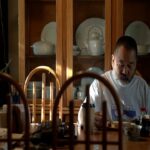
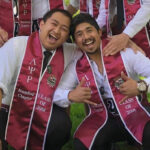

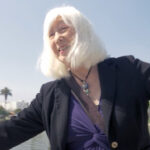
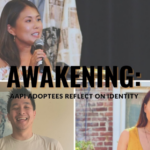
Houston 2018





Apply
Become a fellow or editor
Donate
Support our impact
Partner
Work with us as a brand

The Asian American Journalists Association (AAJA) is a membership nonprofit advancing diversity in newsrooms and ensuring fair and accurate coverage of communities of color. AAJA has more than 1,500 members across the United States and Asia.